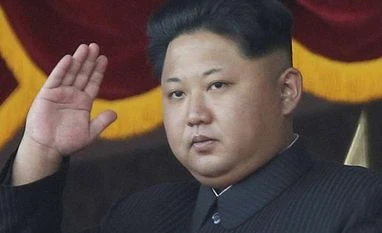Leader Kim Jong-un has ordered North Korea's nuclear arsenal to be ready for pre-emptive use "anytime," in an expected ramping up of rhetoric, following the UN Security Council's (UNSC) adoption of tough new sanctions on Pyongyang.
“We must always be ready to fire our nuclear warheads at any time,” Kim was quoted as saying by the North’s official KCNA news agency today.
Kim also warned that the situation on the divided Korean peninsula had become so dangerous that the North needed to shift its military strategy to one of “pre-emptive attack”.
Such bellicose rhetoric is almost routine for North Korea at times of elevated tensions.
While the North is known to have a small stockpile of nuclear warheads, experts are divided about its ability to mount them on a working missile delivery system.
According to KCNA, Kim made his comments while monitoring the test firing of a new, high-calibre multiple rocket launcher yesterday, just hours after the UN Security Council unanimously adopted the resolution penalising the North for its recent nuclear test and long-range rocket launch.
More From This Section
South Korea's defence ministry said the North had fired half a dozen rockets about 100-150 kilometres (60-90 miles) into the sea off its eastern coast on Thursday.
In a clear threat to neighbouring South Korea, Kim said the new rocket launcher should be "promptly deployed" along with other newly developed weaponry.
“At an extreme time when the Americans... Are urging war and disaster on other countries and people, the only way to defend our sovereignty and right to live is to bolster our nuclear capability," Kim said.
The US-drafted UN resolution adopted by the Security Council late Wednesday laid out the toughest sanctions imposed on Pyongyang to date over its nuclear weapons programme that will, if implemented effectively, apply significant economic pressure to Kim's regime.
The resolution breaks new ground, sanctioning specific sectors key to the North Korean economy — such as mineral exports — and seeking to undermine the North's use of and access to international transport systems.
)